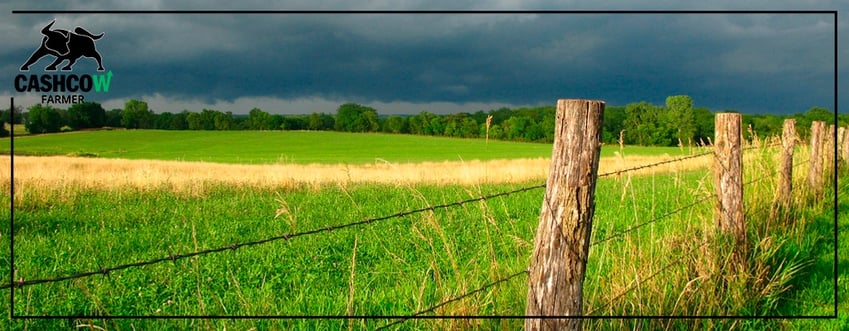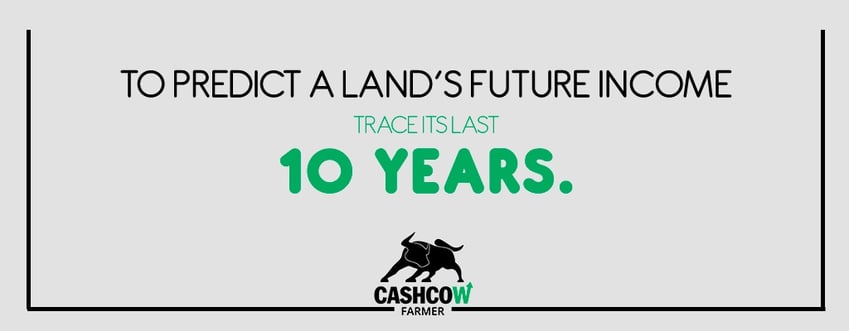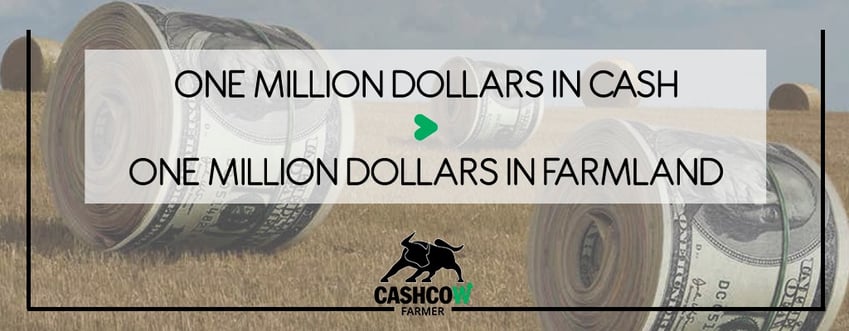Farmers are always interested in what’s going on in farmland sales, for good reason. It’s a competitive realm: you’re not only competing with the people who farm around you, you’re competing with investors. There are doctors in my area who don’t farm, but they sure are interested in renting it out.
Since it’s an eternally hot topic, I wanted to go over a three-part strategy to buying farmland that I believe can be very useful for anyone looking to make the best land purchase possible.
1) Farm Strategy
Your farm strategy is your business strategy. Farmers usually form their strategy alone—but that’s never the path of the wise.
All good businesses have a board of directors. You need to get at least four people involved anytime you’re thinking about a big equipment or a land purchase:
-
Your banker or bankers, (hopefully, you have more than one.)
-
Your accountant, (the person most familiar with your finances)
-
Your tax advisor,
-
Your estate planner, (It’s not always the best idea to purchase the farm yourself; you may want your son or daughter to purchase it with you.)
Some of these may overlap; your tax advisor may be your accountant, and so on. The point remains: it’s always best to consult the people in all four of these roles before major purchases. They’ll keep you from going broke.
But there is an even more important part of a farm strategy: knowing the purpose of the purchase. How does that piece of land fit into your operation?

Let’s say, for example, that the quarter of land is contiguous with your own is for sale. You could probably pay a little more for it than most people because of how conveniently it will fit into your operation. It could be a matter of just knocking a fence down, leaving you with a full mile run for field operations. The longer you can drive without turning around, the more you can get done.
Farm strategy is about evaluating how the land you’re considering is going to add value and synergy to your operation. If there isn’t a clear reason you should buy it, you shouldn’t. In fact, you should have multiple good reasons before you purchase.
And again, your four advisors should all give their approval before you pull the trigger. This is classic “checks and balances.” You’re the President of your operation—but those advisors are your Congress or board of directors.
2) Income Projections
You need to figure out what your income is going to be—which is tricky.
A lot of farmers bought land back around 2012 thinking they’d make $800 an acre in income and pay off the land in 12.5 years, no problem. But that’s not the case anymore.
Realistically, you need your income statement to project a land’s income over the last 10 years—the good, the bad, and the cringe-worthy.
You should also take into account what land is renting for, but realize that even rental prices can be misleading.
Likely, if you’re a good farmer who’s financially forced to rent, you’re not alone. Many others will be renting too, driving down the price of rent. The price you thought you’d get renting your land may not be very good.

So when doing an income projection, you can’t just base your forecast off the “golden years.” Remember that farming is cyclical: golden years are surrounded by a lot of mediocre and hair-graying years.
Your advisors will help you with this, too. Your tax person in particular will know your farm’s income for the last 10 years. Lean on that estimate.
3) Pricing & Financing Strategy
What should I pay for a piece of land? What can I afford to pay?
These questions are really at the center of buying farmland, aren’t they? Yet, there’s no simple formula for answering them. So what should you do?
For starters, talk to your advisors; it should be clear by now that they are essential to every part of your buying strategy.
Beyond that, you need to look at your cash flow and balance sheet. The balance sheet will tell you how much cash you have and if you can pay for a given property.
Keep in mind that paying in cash is never a good idea for farmland; cash is worth more than the land, and it always will be. Cash is always king.
If you buy land for a million dollars in cash, you just lost a quarter of a million dollars. Yes, that land will appreciate, but it’s only valued at 70% of the market value, as far as your net worth goes.

You take a big hit when you buy an illiquid asset; liquidity gives assets huge value. Cash probably has 1.5 times its borrowing value. One million dollars in cash translates to a one and a half million dollar loan.
But if you have one million dollars in farmland, the bank might lend you $600,000-700,000. That’s it.
Pricing and financing strategy go hand in hand.
A note on interest rates
Interest rates are an important part of the price of land. If you’re buying a lot of land and you don’t have a fixed interest rate, a rising interest rate can balloon your payments in the future.
Looking at your financing strategy, let’s say your interest rate is at 4.25% for 20 years. You purchase land for $1,000,000.
Payment will be around $75,000. You have to plan to pay that every year when you’re forecasting. You have to show that your profit will far exceed that payment in order to buy that piece of land. That’s how you figure out what you can afford to pay.
Again, don’t use your cash; you’re going to need it if interest rates go up and you have to pay off loans overnight. The cash is a safety net for the unexpected.
Conclusion
Every farmer’s situation is personal. Some work with multiple operators, and others run the whole enterprise alone. Some are exclusively renting, while others own a fair amount of land. There are dozens of variables involved.
But if you follow our advice and consider these three main factors—farm strategy, income projections, and financing strategy—you can go into an auction sale with your top price in mind and your confidence running high.
Add the blessing of your four advisors, and you’ll be about as safe as a farmer can be buying farmland. Notice the word advisors popping up and in blue a lot??? That was intentional...
Do you already own land that won’t seem to yield a profit? Learn how to make every field profitable here.
Please leave a comment of some helpful things you have experienced in purchasing land.
Top Trending Reads:




